Click on the image above to read more about how SLPs support autistic individuals.
District Learning Support Services, Burnaby Schools
What is Developmental Language Disorder (DLD)? It’s the most common childhood disorder that most people have never heard of. DLD affects 1 in 14 people causing difficulties understanding and using language for no known reason. In Canada, there are approximately 2.6 million people with DLD. DLD is a lifelong problem and affects people of all ages.
Today is international DLD Awareness day and the 2022 theme is Growing with DLD. DLD is a lifelong, permanent disability. People do not grow out of DLD but can thrive with supports that can include speech-language therapy and educational adjustments. It’s about growing with DLD.
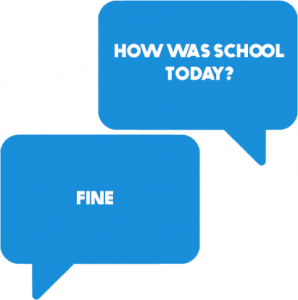
Welcome back to school! Many children often give a one word answer to the common question, “How was school today?” Try some alternative questions to help your child share more information about their day:
Some children will also use a home/school communication book to help them share important information about their day. Please click here for examples. Please see the About page for the name of the speech-language pathologist for your child’s school.
Who better to learn about autism from than the experts – not just people who study autism, but people who are actually autistic! As our knowledge about autism as a society progresses from awareness to acceptance, there is much to learn from autistic folk themselves. Below is an infographic with ways you can educate yourself about autism by listening to autistic voices.
Watch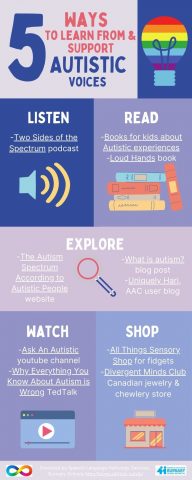
Ask An Autistic YouTube channel
Why Everything You Know About Autism is Wrong TedTalk
Listen
Two Sides of the Spectrum podcast
Explore
The Autism Spectrum According to Autistic People website
What is autism? blog post
Uniquely Hari AAC user blog
Read
Books for kids about Autistic experiences
Loud Hands book
Shop
All Things Sensory Shop for fidgets
Divergent Minds Club Canadian jewelry & chewlery store
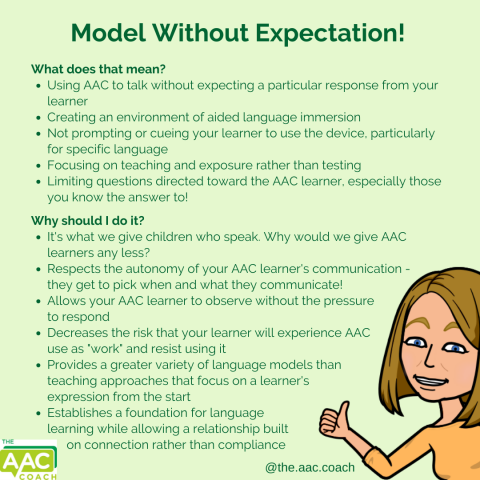
We can create authentic connections with our AAC users by remembering one simple rule: model without expectation!
Modelling without expectation means using the AAC device yourself to model language without asking the child to respond. It’s simple! You are showing the child how to express language in a natural setting. Think of how many times a child hears a word before they express it themselves – the same is true for our AAC users. They require lots of modelling of vocabulary before they can use those words independently.
Kate McLaughlin explains more about modelling without expectation in this video. Watch here
Remember that using an AAC device should not feel like ‘work’ for the child. Language learning should be fun. Here are some activity ideas for Touch Chat.
World Down Syndrome Day is a global awareness day observed on the 21st day of March, the 3rd month of the year. This date was chosen to signify the uniqueness of the triplication of the 21st chromosome which causes Down Syndrome (Down Syndrome International, 2022).
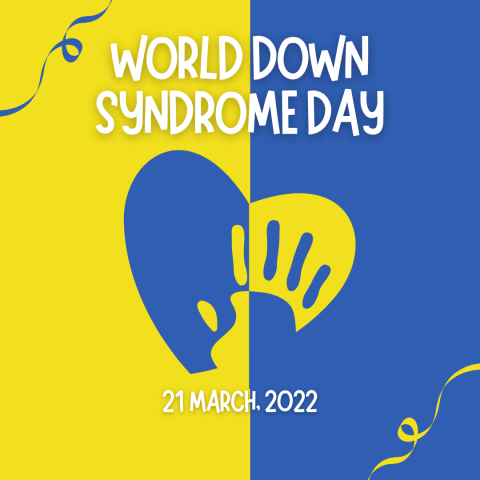
The Burnaby Speech-Language Pathologists work with students with Down Syndrome as well as their families and school teams.
This year’s World Down Syndrome Day campaign theme is “Inclusion Means…” What does inclusion mean to you?
Down Syndrome Resource Foundation
Reference
Down Syndrome International. (2022, February 10). About WDSD. World Down Syndrome Day. Retrieved March 21, 2022, from https://www.worlddownsyndromeday.org/about-wdsd
Thank you to those who took time to attend our virtual Articulation Workshop. We believe that parents and caregivers are a child’s best teacher and we hope you learned some strategies to help your child practice their sounds at home. Speech sound practice can be fun!
If you have questions about the home program, need more materials or have any feedback about the workshop, please contact your school speech-language pathologist. Remember to fill, sign and return the consent form if you would like us to follow up with your child. Have fun practicing!


Happy Friday! We’ve recently added an Early Literacy resource section to this blog which includes information on Learning to Read and updated resources on Phonological Awareness. Hope you and your child can have fun with the activities!
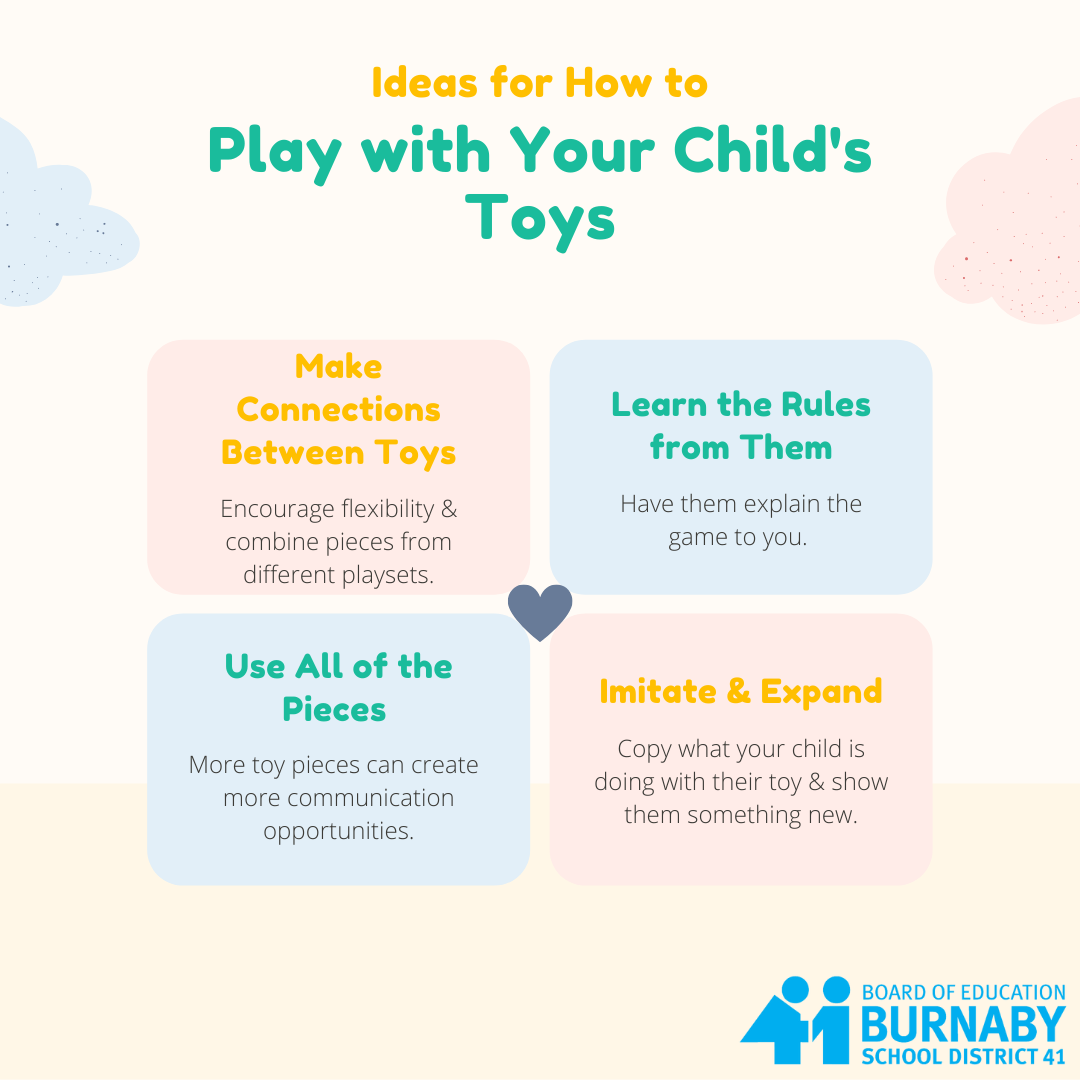
Playing with toys can create a rich environment for developing your child’s communication skills. It allows your child to learn a variety of speech and language skills that are meaningful to their lives.
Here are some ideas on how you can play with some of the things you already have around the home:
The winter holidays can be a fun (and busy!) time of year for many kids and their families. There are lots of opportunities to support language skills during holiday activities while your family is away from school over the holidays. See what suggestions below would be fun and easy for your family to try.
Happy holidays, from the Burnaby SLP Team!
More ideas:
https://childspeech.net/holiday-speech-therapy-tips/
https://blog.expressable.io/holiday-themed-speech-therapy-activities-to-practice-at-home/
https://supersimple.com/article/fa-la-la-la-language-activities-for-christmas/
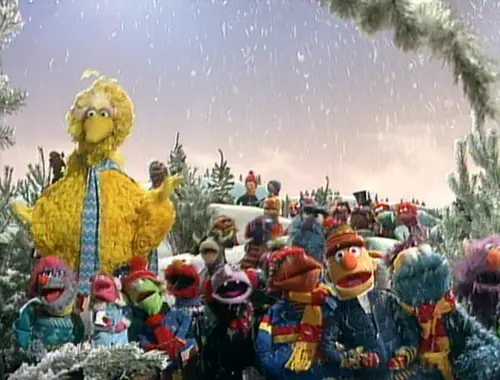
© 2026 Speech-Language Pathology Services
Theme by Anders Noren — Up ↑